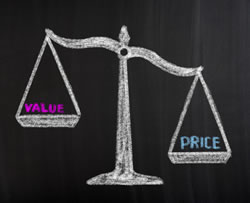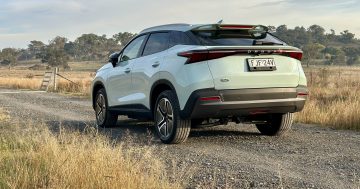Christy Bieber* says choosing the cheapest option doesn’t always save you money, and in some situations, it can end up costing you more.

Image: Marrio31
Saving money is really important, especially if you’re living on a tight budget or trying to keep your credit card balance low to ensure you can pay off what you owe.
And when you’re trying to spend as little as possible, it may seem like a good idea to buy the cheapest products you can find.
Sometimes, this does make a lot of sense.
But there are other situations where being cheap could actually end up costing you a whole lot more than paying for a premium product or service.
In fact, here are four examples of situations where focusing on price at the expense of quality could turn out to be a financial disaster in the long run.
- When you’re paying for professional advice
Professionals who provide advice — including lawyers, accountants, and doctors — typically offer insight into issues that are very important.
The professional you consult may need to provide essential information about your health, your financial situation, or your legal obligations.
Getting bad advice could mean you get sicker, you owe the Tax Office, you lose a potentially winnable legal case, or you make yourself vulnerable to regulatory action.
And if any of these things happen, you’re likely to incur substantial additional costs to fix the mess resulting from the bad advice.
You can’t afford to listen to an unprofessional person when seeking professional advice, so don’t shop for services based on who seems to be the cheapest.
Instead, look at the reputation and experience of the professional you’re consulting.
If you have to pay a little more to get help from someone who has proven to be competent, it’s worth paying the premium.
- When you’re buying products you’ll use often or for a long time
There are products that you have to interact with every single day of your life.
This could be something like your refrigerator, the car you drive, or the shoes you wear.
If you opt for the cheapest item and compromise quality, the item is more likely to break quickly and need to be replaced.
You could end up spending a whole lot more continually replacing the substandard item than you would have spent if you’d just purchased a higher quality product in the first place.
The item could also work poorly, causing you frustration and eating up your time whenever you use it.
It’s often not worth the daily hassle when you could spend a little bit extra to get something that works.
- When doing home repairs or car repairs
If you’re fixing your home or vehicle, you want to make sure you get quality parts and service from a professional.
Don’t just look for the cheapest quote; focus on quality and reputation.
Otherwise, your repairs could fail quickly, forcing you to spend more to fix the situation.
You could also jeopardise your home’s stability and property values, put your car at risk of sustaining more serious damage, shorten your vehicle’s lifespan, or even put yourself and your family at risk if a cheap but unqualified repair person does a dangerously shoddy repair job.
- When you’re purchasing insurance coverage
Finally, if you’re buying insurance coverage and you focus only on getting the cheapest premiums, you may not be adequately protected from whatever risk the policy is supposed to protect against.
Insurance should cover costs if you get sick, if your home or car is damaged or destroyed, or if something else goes wrong.
The costs associated with an accident or illness could be astronomical if you have the wrong auto insurance, health insurance, or homeowner’s insurance — so be sure you get coverage that will actually protect from peril even if you have to pay higher premiums for it.
Consider the deductible, or out-of-pocket amount you have to pay, as well as coverage limits and exclusions that apply to your policy.
If your deductible is too high to cover or coverage limits and exclusions mean you’d essentially be on your own to cover costs in most situations, skip the cheap but skimpy policy and pay higher premiums for a better one.
Don’t skimp on quality when making important purchases
Each of these situations are clear examples of times when opting for the cheapest option could mean you spend more money in the long run.
Whenever you make a purchase choice, always consider the potential consequences of getting a substandard product or service.
When those consequences could be dire, your focus should be on quality rather than opting for the lowest price tag.
Looking for the best, rather than the cheapest, might just end up saving you a fortune.
* Christy Bieber is a full-time personal finance and legal writer.
This article first appeared at www.fool.com











